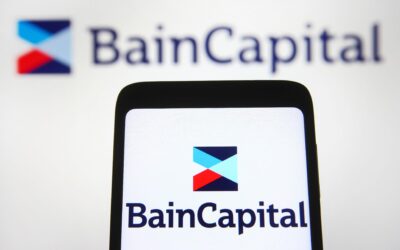Private equity has spent more on the 2020 political races than on any previous election, setting a new high for political donations at a time of fierce debate about greater regulation of the industry.
Employees of private equity and other investment firms, excluding hedge funds, gave $132m to candidates, parties, political action committees and outside groups through 30 September, according to the Center for Responsive Politics, a nonprofit that reports on money in politics. The data were released on 16 October by the Federal Election Commission.
That sum is the most the industry has ever spent on an election cycle, exceeding the $117.4m spent on 2016 races.
The surge comes as the buyout industry faces several important regulatory and legal issues that could hinge on the results of the election. Private equity has taken political heat in the past several years over issues including their role in bankruptcies of private equity-owned companies, job losses and surprise medical billing, among others.
Campaign spending in many industries has been elevated this year largely because of the uncertainty surrounding the coronavirus pandemic and the economy more generally, said David Stewart, a principal in the public-policy practice of law firm and lobbying shop Squire Patton Boggs.
“These are very unprecedented and uncertain times, and that is realigning the thinking across the board for a lot of industries,” he said.
For private equity, the major tax-cut bill signed by President Trump in 2017 is a key piece of legislation that could be vulnerable in a Democratic majority, he said. “There’s a pretty clear mandate for revisiting large swaths, if not the entirety, of those tax cuts if Biden wins the presidency,” said Stewart.
The majority of spending by private equity employees has been so-called soft money, or donations to groups considered independent of any particular candidate. Unlike money given directly to candidates, this type of giving is unregulated and not subject to limits. Private equity employees have spent about $69.5m in soft money on the 2020 races, according to the Center for Responsive Politics.
The industry also gave $62m directly to candidates and parties, favoring Democrats by 59% to 41%, according to the Center for Responsive Politics.
The largest recipient of individual contributions was Democratic presidential nominee Joe Biden, at $2.1m, followed by three Republican senators: Mitch McConnell (R., Ky.), John Cornyn (R., Texas) and Susan Collins (R., Maine).
As in 2016, President Trump is lagging his opponent in direct contributions from private equity, having taken in about $332,000.
However, the industry has given much more to pro-Trump political-action committees.
Blackstone Group chair and chief executive Stephen Schwarzman, a longtime major Republican donor, has given $3m to the pro-Trump America First Action, among the large checks he has signed to outside groups. He has also given $20m to a PAC working to maintain the Republican Senate majority, $2.5m to a PAC dedicated to supporting Republican candidates in the House and $1.5m to a PAC supporting Collins.
Blackstone employees’ political spending dwarfs that of the employees of any other firm, at $34.2m, according to the data. Although Schwarzman supports Republicans, firm President Jon Gray and executive vice chair Hamilton James back Democrats. In total, Blackstone employees have given about $4.8m to Democrats and liberal groups, and about $29.4m to Republicans and conservative groups, according to the Center for Responsive Politics’ data. A spokesman for Blackstone declined to comment.
Employees of Bain Capital, the Boston firm co-founded by Sen. Mitt Romney (R., Utah), have been the second most active, spending $13.9m, virtually all on behalf of Democrats and liberal groups. A Bain spokesman declined to comment.
Political spending typically favors incumbents, as donors often prefer politicians already in power. Although three Republicans are the top recipients in the Senate, which has a Republican majority, four Democrats lead the race for private-equity money in the House, which is expected to remain in Democratic control.
The top recipient of private equity money among House candidates is Josh Gottheimer (D., N.J.), at more than $451,000, according to the Center for Responsive Politics.
Earlier this year, Gottheimer was among the members of Congress who asked the Treasury Department to waive a rule that blocked most private equity-owned companies from access to pandemic-related stimulus funds. Rep. Gottheimer’s office didn’t immediately reply to a phone call seeking comment.
Source: Private Equity News
Can’t stop reading? Read more
Bain Capital invests $250 m in business services firm Sikich
Bain Capital is picking up a minority stake worth $250 million in business services firm Sikich,...
Blackstone completes Civica acquisition
Funds managed by affiliates of Blackstone, the world’s largest alternative asset manager, have...
Peloton shares surge as news of PE buyout interest breaks
Shares in Peloton soared by as much as 18% on Tuesday after CNBC reported that several private...




